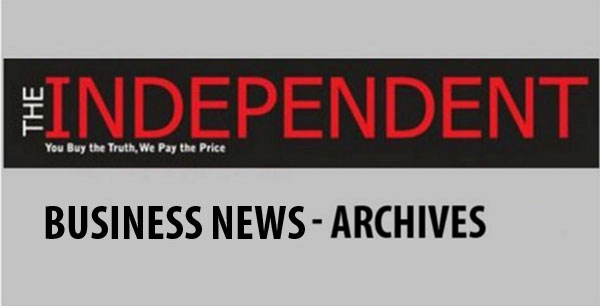
By Joan Akello
Ivan Kyayonka was interviewed by The Independent’s Joan Akello following an announcement by Shell Oil Products Africa (Shell) on reviewing ownership.
What has led to its exit from Uganda?
First of all, we have not exited; we have expressed a desire to review the ownership of part of our businesses in Africa. So we are not exiting Africa. We are simply reviewing the ownership of some aspects of our businesses. Our businesses are structured in what we call the upstream and downstream. The current strategy is to focus our capital and resources in upstream business. And we are still involved in many upstream operations in Africa. But for now a decision has been made to divest from 21 countries in Africa but only in the downstream part of the business.
What do you see happening to shell in Uganda after it’s sold out?
If the transaction is successful, there will be no Shell in the market. There will be a new owner and probably a new name.
Any prospective buyers?
I do not know. It is in the very early days.
So we are still seeing shell in Uganda?
Well, the proposal is to divest our business in Uganda which deals with running petrol stations and distributing fuel. We may acquire an interest to play in the upstream developments in Uganda but we have not yet acquired that interest. We are still reviewing prospects there (western Uganda) though we have not acquired that concession.
Why is Shell quitting when Uganda has discovered oil?
We are reviewing the ownership options of part of our business. It is a strategy, an aspect we like to focus on part of upstream business. Up till now we have been involved in the whole process from digging from the ground to distributing fuel to your engine. We have decided to focus on exploration and production and withdraw from distribution.
Is the company thinking of reviewing the number of its employees in Uganda?
When you divest a business as a going concern you almost pass it on, the business, the assets, the stocks, and the people. It is a share sell. The owners of the business will change. You may find me still sitting in this chair.
What will happen in the event shell exits totally from Uganda?
Well, we have not reached that point. We have not said that we have exited completely from Uganda. The shell business is very wide. The downstream business is a very small part of it and the same happens in the whole of Africa. We will continue to have upstream operations in Africa and if possible in Uganda if we ever become successful.
How much does Shell import daily?
We do not have such figures. I do not have the figures in my head .We do not structure our businesses daily. I can tell you that shell represents 36% of this market. We sell 36 % of the total fuel used in Uganda.
How many petrol stations does shell have?
Shell has about 120 petrol stations.
Fuel prices in Rwanda are relatively stable in contrast to Uganda’s. Is it because the economy is over-liberalised?
Oil is an international commodity whose prices keep changing by the minute. The stock-exchange keeps changing daily, they rise and fall. The only way a country can say its prices will be flat is if they subsidise. If Rwanda has chosen to subsidise, it is their business. I think what Uganda has done is to say that demand and supply will determine the price. They have decided to leave the market to set the price. Some do not like it. I think most economies would like a market where there is no artificial setting of prices. Some people do not realise the impact of this intervention where prices are set regardless of the costs of production.
What challenges do petrol dealers face?
I am the chairman of petro companies not dealers. When you say petrol dealers you mean the retailers. The biggest challenge is in Kenya. The infrastructure which is used to bring the products is our biggest challenge starting from the port (Mombasa). There is insufficient capacity at the port, and the pipeline, the trucks, the roads: Everything. Demand has increased and superseded the pipeline. The pipeline we are using started in 1967. Its capacity is less than 50% of its current demand. The volume of cars has increased.
What advice do you have for fellow companies regarding the fuel scarcity?
Well, the companies are doing all they can to import through the difficult circumstances in Kenya .There are many limitations for example the infrastructure which has not kept up with demand. I appeal to the dealers not to think of profiteering but ensuring that products are available on the market.
 The Independent Uganda: You get the Truth we Pay the Price
The Independent Uganda: You get the Truth we Pay the Price


